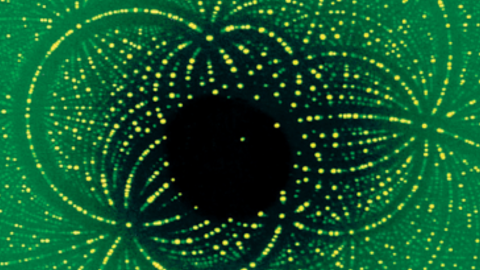NFFA projects makes scientific and technical services available across Europe

Through its Microscopy Service, the UAB forms part of the NFFA-Europe project, which provides researchers across Europe with a wide array of scientific and technical services. Applications for access can be sent in until 1 September.
02/07/2021
Through its Microscopy Service, the UAB forms part of the NFFA-Europe project, which provides researchers across Europe with a wide array of scientific and technical services. It offers the possibility of using large-scale facilities with characterisations that are not available at university.
NFFA-Europe is a distributed research infrastructure that integrates nanofoundries (growth, synthesis and nano/micro-fabrication) with advanced characterization and fine analysis available at European large-scale facilities, and with theory and simulation tools, creating a unique offer for cutting edge research in nanoscience and nanotechnology.
The H2020 project NFFA Europe Pilot offers users the possibility to carry out cutting edge research at the frontier of the nanoscience and nanotechnology with the widest possible range of tools and more than 180 techniques currently available. Researchers accessing the NFFA-Europe facilities can control and design the properties of materials from the nano- to the micro-scale, and even up to the macro-scale. Thanks to NFFA Europe Pilot, a new project supported by the H2020 framework programme of the European Commission, this comprehensive catalogue of facilities and services is now offered to users for free. The project will consolidate and expand the operation of an Interoperable Distributed Research Infrastructure for Nanoscience (IDRIN) – a unique platform to perform complex projects, offering a seamless series of science services to its users.
Through the NFFA-Europe Research Infrastructure, comprehensive research projects become feasible through the submission of a single proposal.
The NFFA-Europe offer is divided in 6 installations: lithography and patterning, growth and synthesis, structural and morphological characterisation, electronic, chemical and magnetic characterisation, from mamo to micro/macro, and theory and simulation.
Proposals will be collected and evaluated every three months.The first set of proposals will enter the evaluation pipeline on 1 September and can be sent to: www.nffa.eu.
More information:
https://www.nffa.eu/offer/
This information is related to the following SDG
Partnerships for the goals